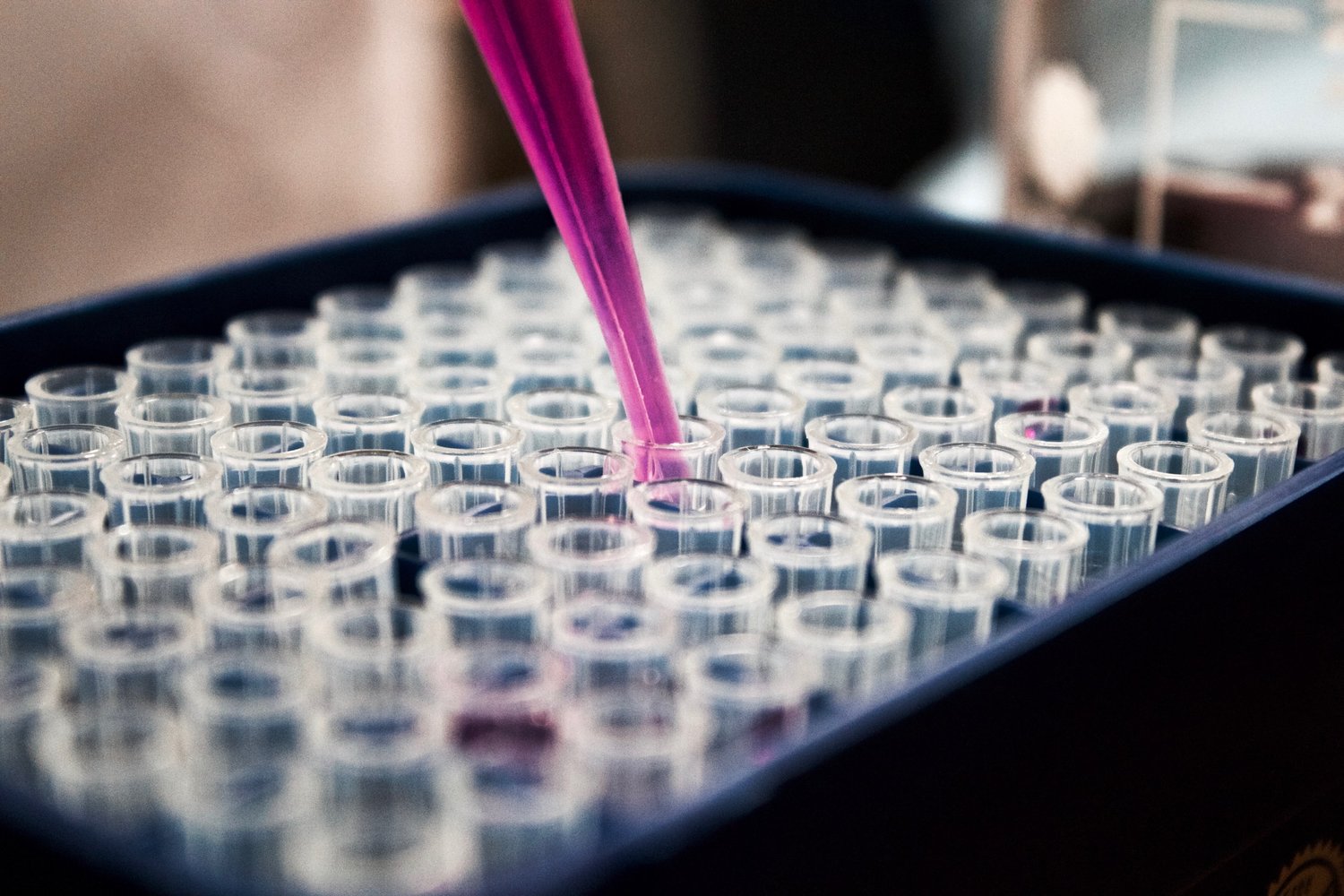WHAT IS FASTING?
THE AGE-REVERSING MUSLIM FAST WINS NOBEL PRIZE IN MEDICINE
The list of wonders of modern medicine is extremely extensive. One could go on and on all day long but the list would still go on. Yet the list of its failures might be more surprising by far.
The average life expectancy in developed nations is higher than it has ever been in the past, and yet most of this aged population is hounded by chronic diseases. They keep these diseases at bay by stuffing themselves full of various medications. And what more can they do without the hope of a cure? So when we talk about the treatment of chronic diseases, we have to admit that we may have reached an impasse!
Many people around the world have had this realization. And that is why alternative therapies have started to seize people’s attention. One such therapy that has its roots in ancient cultural and religious rituals practiced for more than a millennium is Fasting.

“FASTING HAS BEEN FOUND TO BE ASSOCIATED WITH INCREASED SEROTONIN LEVELS. SEROTONIN IS WHAT WE CALL THE “HAPPINESS HORMONE” BECAUSE INCREASES IN ITS LEVELS IN THE BRAIN ARE ASSOCIATED WITH HIGHER CONTENTMENT AND DECREASED ANXIETY AND DEPRESSION.”
Despite the increasing nonchalance with which people view religion nowadays, a huge number of Muslims have still held on to their traditions and continue to Fast from dawn to dusk for 30 days consecutively in the Month of Ramadan each year. That is one big sample population to study the effects of fasting I would say…
The interest in Fasting as a therapeutic technique is not very new. In fact, it started more than 60 years ago with a Soviet psychiatrist Yuri Nikolaev in a hospital in Moscow. ¹ Since then, it has come a long way where doctors and scientists from all over the world have conducted their own research to confirm or deny the amazing results that Yuri Nikolaev found. In this regard, the 2016 Nobel prize-winner Yoshinori Ohsumi has had a groundbreaking positive impact on the medical discourse. ²
HOW FASTING AFFECTS METABOLISM
Fasting produces a state of starvation. It is easy to see that as something bad for the body but we must understand that human beings have had a long time to adapt to prolonged periods of starvation in times before the industrial revolution. Stocked refrigerators; with an excessive variety of food; are the true anomaly against all of human history.
When the body is starved, it initially derives its nutrition from the stored carbohydrates. But soon it turns its attention to proteins and fat. After a short duration of burning proteins, fats become the key source of energy for the body. That is a sure-fire way to burn excess fat from our bodies while preserving our muscle mass.

You can see why people have started using fasting as a way of losing weight instead of using strict diets of calculated calories. A meta-analysis of 35 studies has indicated that the Muslim Ramadan Fasting, in particular, has been positively associated with a significant weight loss in both men and women.³
Bear in mind that Muslims fast for spiritual reasons without really caring about the weight decreasing aspect of fasting. So if weight loss as a by-product happens to be so significant then imagine how effective fasting could be for those who aim at losing weight as the main product! To think that a 1400-year-old ritual could have such hidden benefits that we are only now finding out is a humbling realization.
RISK OF CARDIOVASCULAR DISEASE
Time-restricted eating (a technical name for the Muslim Fast) has been associated with a decrease in overall blood pressure, triglycerides, and markers of oxidative stress. These statistical values are all indicators of cardiovascular health. Research published last year has described these positive effects to be a result of unintentional energy restriction which occurs due to time-restricted eating.⁴
PSYCHOLOGICAL EFFECTS
Fasting has been found to be associated with increased serotonin levels. Serotonin is what we call the “happiness hormone” because increases in its levels in the brain are associated with higher contentment and decreased anxiety and depression.
An article published in the neurology international journal in 2017 has confirmed that the Muslim individuals who Fast in Ramadan have higher levels of serotonin and dopamine. The research has also indicated an increase in Brain-derived neurotrophic factor and nerve growth factor levels that are directly linked to better neurological health.⁵

TREATMENT OF DISEASES
Fasting shows promising effects in the cure of chronic conditions such as coronary artery disease, asthma, psychosis, rheumatic fever, psoriatic arthritis, and cancer.
ASTHMA
It is an allergic disorder in which you get symptoms of sneezing, rhinorrhea, and coughing on exposure to an allergen. To mitigate the attack, an asthmatic has to keep the drugs at hand. Fasting can help with such allergic disorders by blunting the excessive immune response.
Research was conducted on mild asthmatic patients to study the effects of fasting on lung function and asthma pathogenesis. The subjects who were made to fast for 24 hours showed decreased activity of the NLRP3 inflammasome, a bodily defense system molecule, compared to the controls. They also showed decreased serum levels of chemicals and cells that are involved in the development of asthma. Additionally, fasting decreased histamine levels and its associated effects that are involved in the causation of symptoms.⁶
RHEUMATIC FEVER
Rheumatic fever is a sequela of a bacterial infection that causes a sore throat. Research indicated that fasting for 2 successive days improved the clinical picture of rheumatic fever prompting more research in this aspect. ⁷
PSORIATIC ARTHRITIS
It is an inflammatory disorder that causes bone pain and requires pain killers to deal with the pain and additional drugs to treat the disease. Fasting not only helps in mitigating the progression of disease but also reduces the required dose of pain killers, saving the patient from many side effects of drugs.⁸

CANCER
Yes, cancer too! Fasting not only helps you better tolerate the chemotherapeutic agents but also aids in killing the cancer cells.
This was demonstrated in a study conducted on two groups of rodents who were given chemotherapeutic agents. One group was subjected to fasting and the other group was well fed. The subjects who were made to fast were better able to tolerate chemo compared to the other group.
This can be explained by the fact that fasting induces a nutrient-deprived state in the cells. Cancer cells need a constant supply of nutrients to divide, so their growth and metabolism are affected by this condition of starvation, making them more vulnerable to chemo.⁹
Additionally, a set of genes that makes cancer cells more vulnerable are activated in the nutrient-deprived state, endangering the survival of cancerous cells. Normal cells, however, are adapted to tolerate the fasting state through activation of protective genes which decrease the cellular metabolism to a lower level. This ensures their survival.
EFFECTS ON SLEEP QUALITY
Fasting has a two-fold effect on sleep patterns. In the initial days of fasting, there is a delay in sleep onset and awakening. This is because a food-deprived state stimulates the release of the stress hormone, cortisol which reduces somnolence.
With prolonged fasting, the body adapts to this state, and the circadian rhythm is aligned with the body’s internal clock. Fasting promotes the release of the sleep-producing hormone Melatonin, which reduces the duration of sleep onset and promotes sleep maintenance.
Additionally, fasting favors the Rapid Eye Movement (REM) sleep pattern. These effects are, however, affected by the environmental and lifestyle changes that accompany fasting.¹⁰
AGE REVERSAL
In the end, let me get back to where I started. The problem of the aging population, hounded by chronic diseases. Fasting, my dear reader, can kill both of these birds with one stone.
Dietary restriction has been proven to be a legitimately efficient way of reversing age-related changes within our cells. This reversal would not only keep the cells healthier and save them from the onslaught of diseases, but it would also make them younger.¹¹
This is achieved by the function of autophagy with literally means self-eating. The body, when starved, must turn inwards to salvage nutrients if it wants to stay alive. It does so by eating up dead and dying cells and organelles which are later replaced by newer and healthier entities. That is an efficient self-cleaning mechanism that keeps our bodies young.¹²
That means that your chronological aging will not actually make you feel old. You might not live longer than you already can, but as long as you do you will be disease-free and full of youthful energy.
And that is a double deal that is hard to pass. To read more about this take a look at my book Lead A Horse To Water.¹³
ENDING NOTE
Check out my blog at LiveYounger to get some more insights into living a healthier and happier life while avoiding the artificial constructs of modern society. We believe in a scientific and unbiased approach to medicine and health without restricting ourselves to mere allopathy.
We believe in living purposeful lives and holistic health is its first pillar!
“ALTHOUGH “FAST TO HEAL” IS ISLAMIC DOCTRINE, IT IS ALSO TODAY’S CUTTING EDGE FINDING TO OPTIMAL HEALTH AND AGE REVERSAL. SURE THERE ARE NUMEROUS HEALTHY FASTING REGIMENTS, HOWEVER THE 2016 NOBEL PRIZE IN MEDICINE WAS AWARDED SPECIFICALLY ON “MUSLIM TOTAL STARVATION FAST” ”
- “Therapeutic Fasting Technique Introduced by Yuri Nikolaev.” https://www.siberika.it/therapeutic-fasting-technique-introduced-by-yuri-nikolaev/ (accessed Mar. 06, 2022).
- “The 2016 Nobel Prize in Physiology or Medicine – Press release.”https://www.nobelprize.org/prizes/medicine/2016/press-release/ (accessed Mar. 06, 2022).
- H. A. Fernando, J. Zibellini, R. A. Harris, R. V. Seimon, and A. Sainsbury, “Effect of Ramadan Fasting on Weight and Body Composition in Healthy Non-Athlete Adults: A Systematic Review and Meta-Analysis,” Nutrients, vol. 11, no. 2, Feb. 2019, doi: 10.3390/NU11020478.
- K. Gabel, S. Cienfuegos, F. Kalam, M. Ezpeleta, and K. A. Varady, “Time-Restricted Eating to Improve Cardiovascular Health,” Curr. Atheroscler. Rep., vol. 23, no. 5, p. 22, May 2021, doi: 10.1007/S11883-021-00922-7.
- A. Bastani, S. Rajabi, and F. Kianimarkani, “The Effects of Fasting During Ramadan on the Concentration of Serotonin, Dopamine, Brain-Derived Neurotrophic Factor and Nerve Growth Factor,” Neurol. Int., vol. 9, no. 2, pp. 29–33, Jun. 2017, doi: 10.4081/NI.2017.7043.
- K. Han et al., “A Pilot Study To Investigate the Immune-Modulatory Effects of Fasting in Steroid-Naive Mild Asthmatics,” J. Immunol., vol. 201, no. 5, pp. 1382–1388, Sep. 2018, doi: 10.4049/JIMMUNOL.1800585.
- “Antirheumatic effects of fasting – PubMed.” https://pubmed.ncbi.nlm.nih.gov/1862244/ (accessed Mar. 06, 2022).
- M. Adawi et al., “The Impact of Intermittent Fasting (Ramadan Fasting) on Psoriatic Arthritis Disease Activity, Enthesitis, and Dactylitis: A Multicentre Study,” Nutrients, vol. 11, no. 3, Mar. 2019, doi: 10.3390/NU11030601.
- C. Lee et al., “Fasting cycles retard growth of tumors and sensitize a range of cancer cell types to chemotherapy,” Sci. Transl. Med., vol. 4, no. 124, Mar. 2012, doi: 10.1126/SCITRANSLMED.3003293.
- A. S. Almeneessier and A. S. Bahammam, “How does diurnal intermittent fasting impact sleep, daytime sleepiness, and markers of the biological clock? Current insights,” Nat. Sci. Sleep, vol. 10, pp. 439–452, Dec. 2018, doi: 10.2147/NSS.S165637.
- J. L. Dorling, C. K. Martin, and L. M. Redman, “Calorie restriction for enhanced longevity: The role of novel dietary strategies in the present obesogenic environment,” Ageing Res. Rev., vol. 64, Dec. 2020, doi: 10.1016/J.ARR.2020.101038.
- “When It Comes To Living Longer, It’s Better To Go Hungry Than Go Running, Mouse Study Suggests — ScienceDaily.” https://www.sciencedaily.com/releases/2008/05/080514064921.htm (accessed Mar. 06, 2022).
- N.Sakr, “Lead A Horse To Water”.


